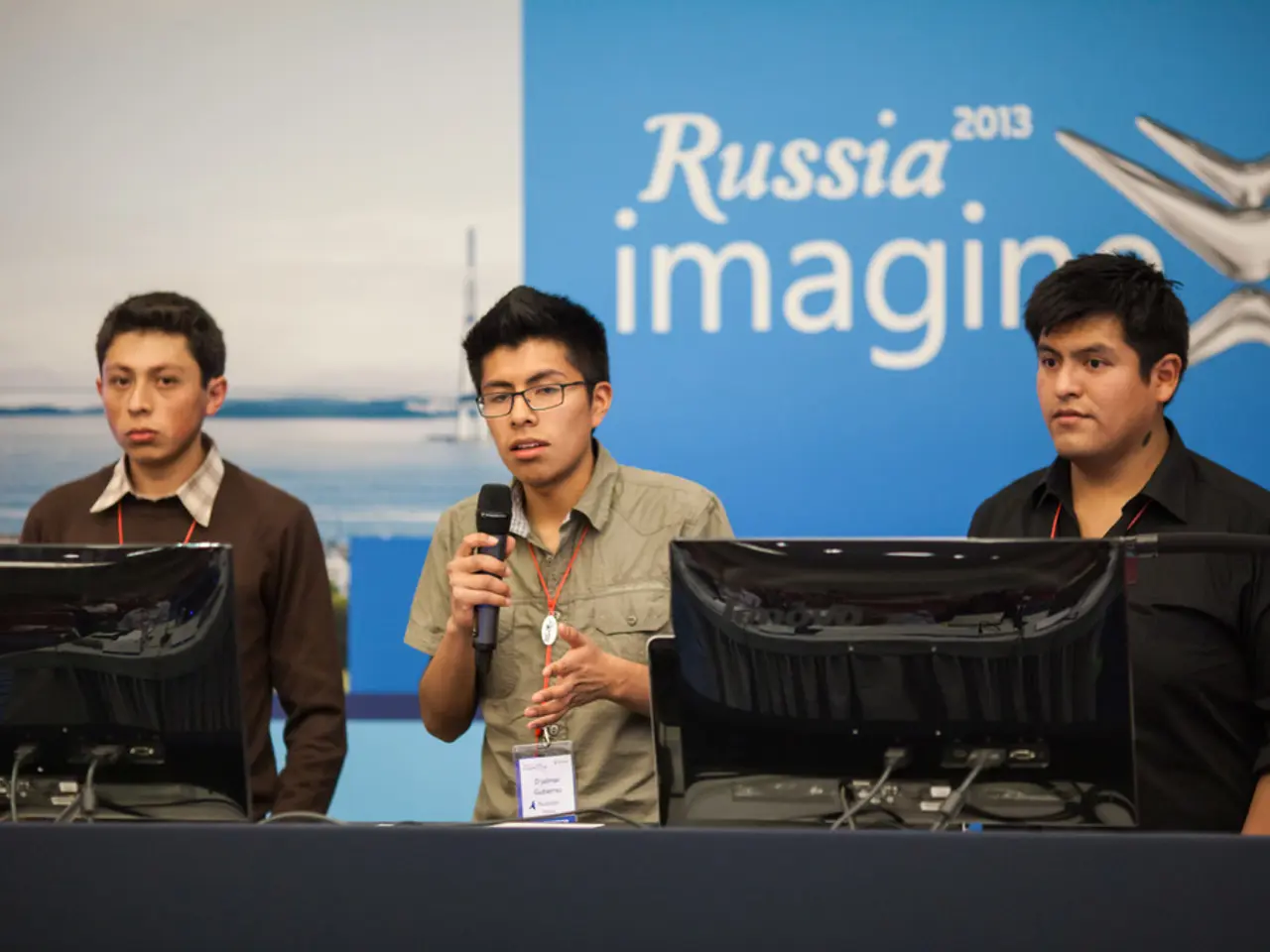"Future Uncertainty Among Berlin's GenZ: 'No Room for Child-Rearing'"
In the heart of Germany, a new generation is shaping the future - Generation Z. Born between 1995 and 2010, this cohort is known for their digital fluency, activism, and unique concerns about their future.
Economic uncertainty looms large for many Gen Z individuals. Unlike previous generations, they show a reduced willingness to prioritize work flexibility and intense competition. This pragmatic approach reflects a skepticism about traditional economic milestones and stability.
Climate change and environmental sustainability are also significant concerns for Gen Z. Although specific climate anxiety details are not extensively documented, global trends suggest that this generation prioritizes sustainability and expects authentic corporate and political action on climate issues.
Inclusion, equity, and authenticity are at the forefront of Gen Z's political and social concerns. They recognize the importance of the German government's role in advancing women’s equality, addressing the gender pay and care gaps, and broader diversity, equity, and inclusion (DEI) concerns. Gen Z appreciates genuine commitments over performative actions.
Gen Z's relationship with technology is nuanced. While they embrace AI and new technologies, they approach them with caution, fearing overreliance might undermine creativity and critical thinking. They desire balanced, structured use of technology in education and work, reflecting a "reasoned skepticism" shaped by exposure to misinformation and algorithmic bias.
Michael, a 21-year-old history and philosophy student in Berlin, perceives a growing apathy in society, particularly regarding global issues like the genocide in Palestine. He fears for the future habitability of the world due to climate crisis, migration, and strengthening nationalism.
Felipe, 25, and his sister Marcela, 23, both living in Berlin, express uncertainty about the political situation, including wars, climate crisis, and right-wing shifts.
Sami, a 26-year-old from Louisiana living in Berlin, sees a dark future but maintains a spark of hope. She observes regression in politics and legislation and views climate crisis, homophobia, and right-wing developments as major challenges.
Despite these concerns, Gen Z remains resilient. Aylin, a 24-year-old social pedagogy student, still enjoys the present despite her future anxieties. She describes a sense of needing to be twice as strong professionally, politically, and personally to address the challenges of her generation.
Paul, an 18-year-old Berliner training to be a kindergarten teacher, expresses concerns about the potential outbreak of war affecting his family. Yet, he believes it is important to continue going out despite some of his friends' opinions to the contrary.
Sami finds social media both helpful for facilitating contact and stressful due to the overload of information and concerns about AI, data, and privacy. She is not alone in her concerns, as many of her peers exhibit isolation and spend excessive time online.
The data highlights a generation that is digitally fluent but cautious, socially conscious with a demand for authenticity, pragmatic about economic realities, and politically focused on equity and genuine progress. Generation Z in Germany is a generation that is not only shaping the future but is also aware of the challenges they face and is determined to meet them head-on.
Read also:
- Energy Minister of Malawi, Ibrahim Matola, heads Malawian delegation for a knowledge exchange on BESS (Battery Energy Storage Systems), a trip held in India. This exchange is backed by the Global Energy African Partnership Program (GEAPP).
- Asia's health landscape significantly shaped by philanthropic efforts - Nations bolstered to become self-sufficient in healthcare.
- List of Black Women in STEM Fields Featured on Forbes' 2025 Over 50 List
- Unexpected bonus or present could catch you off guard today, Leo, according to horoscopes for August 13, 2025.








